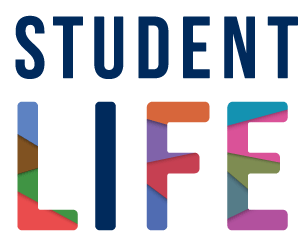
Posted March 25, 2022
By Kirsty Clarke
When life gets stressful—because of academics, finances, the pandemic or anything else—it can be hard to know where to turn for assistance. U of T’s new model of care provides all kinds of options for help from others. But what if your own best source of help is you? We can support you with a range of resources to build your own skills and resilience.
We’ve heard a lot about resilience over the past few years, and you have probably developed it within yourself whether you know it or not. Resilience is your capacity to recover from challenges or difficulties—and may include using your own skills and strengths, and knowing when and how to seek help from others. It is possible to consciously build your own resilience skills. Strategies to enhance your capacity to manage stress, as outlined in this article, can be part of that resilience. They may include sharing concerns, engaging in physical exercise, noticing positive things in your life and helping others. If you start building these skills now, they can help you move forward and stay with you for managing future challenges.
Health & Wellness offers a wide range of workshops, virtually and asynchronously, that can help you.
Building Positive Mental Health is one example. You can learn skills to maintain your mental health as a student and learn about the range of resources available to you. You’ll be primed to find what you need if something comes up in future.
Another option applicable for daily life could be 5 Ways to Wellbeing, “a tri-campus program that teaches participants how to apply five simple, evidence-based actions in a variety of ways to promote positive mental health and wellbeing.” Click on How the Program Works, for more details, or try the ‘pocket version’ online: This includes a video session, a worksheet and a handout of resources.
Student Mary C., who has taken the workshop and now delivers it for students as a Healthy UCrew member, says:
“From this workshop, I’ve taken away effective mindfulness strategies like the 5-4-3-2-1 grounding exercise that I now use in my everyday life. It’s also a refreshing way to spend an hour to disconnect from school and work and to simply focus on the present moment!”
Among a total of almost 2,500 workshop participants who had joined a coping skills workshop series (pre-March 2020) and answered a survey about their experience, 99 percent noted that they would change their related behaviour as a result of the workshop experience and were satisfied with the workshop experience. And 94 percent said they would ‘use healthy coping strategies’ to improve their wellbeing.
The full range of workshops includes topics as diverse as breathing, mindfulness, sleeping well and managing exam anxiety, overcoming imposter syndrome, and there are also Community Support Groups, focusing on a range of different topics. Benefits of attending workshops (many are virtual) include improving and maintaining your own mental health and wellness, meeting other people who are building the same skills, and learning skills you can apply in many areas of your life from the classroom to the wider world beyond campus.
Each workshop represents an opportunity for you to build your own capacity to manage stress now and in the future. Why not find one or two skills you’d like to strengthen, and sign up today.




